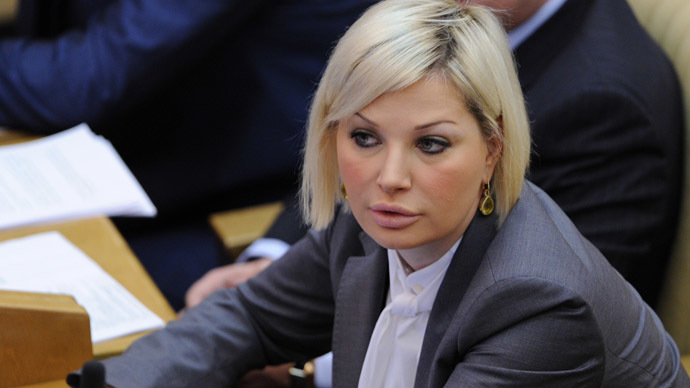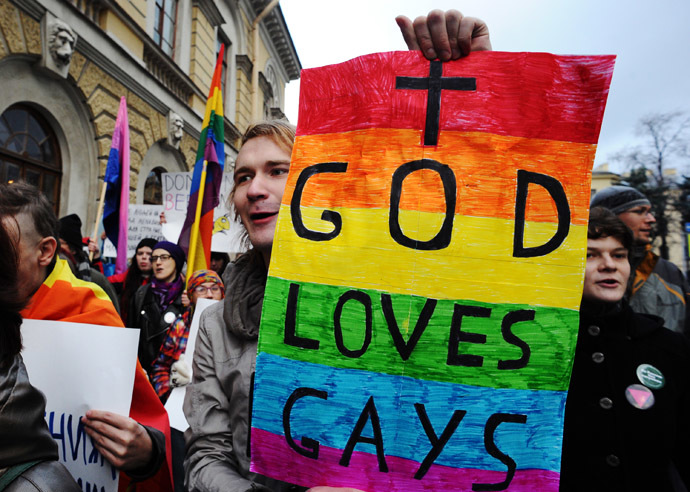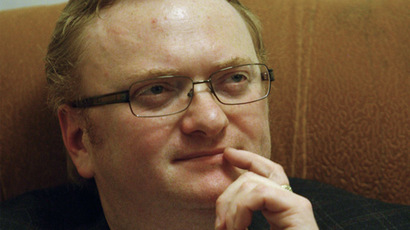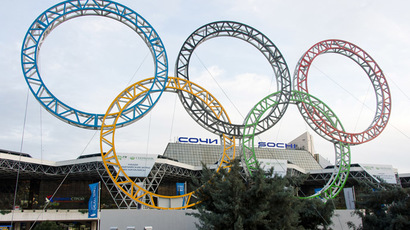Russian opera star, MP speaks against anti-gay propaganda law

Opera diva Maria Maksakova, an MP for the ruling United Russia party, says the controversial ban on propaganda of non-traditional sexual relations among minors, dubbed the “anti-gay” law in the West, must be revised as it damages the investment climate.
“It is sad to realize that the Olympic Games in Sochi, to which we have been preparing for so long and anxiously, may pass with less brilliance than we expected because of this unfortunate initiative, which, I believe, was passed by the [parliament] without a thoughtful discussion and in the wake of not very well-founded ideological clichés," Maksakova said.
The rather surprising comment was made at a meeting of the liberal wing of the United Russia party. (The existence of such a wing at the ruling party came as a surprise for many as well.)
According to the diva, the law – which was passed last summer - is seriously damaging the investment climate for Russia, which is very important.
Maksakova specifically drew attention to the negative impact of this initiative on Russian artists working in the West, who are now facing “discrimination” because of the so-called “anti-gay” law. A mezzo soprano soloist with St. Petersburg’s Mariinsky Theater, she said her colleagues “are being kicked out from plays and orchestras” in Europe.
The widely-criticized law bans propaganda of non-traditional sexual relations among the minors. However, Maksakova pointed out, no one hears that it is only aimed at protecting children, “everyone reads only the first line” of the law and is not interested in “what exactly we meant.”

Speaking to her party colleagues, the famous opera singer said she was unhappy about the “rhetoric” used in the law and particularly that "strange word non-traditional” sexual orientation.
“If we look back at our historic origins, for instance Byzantium, which got the major part of its culture from Ancient Greece, there might be doubts whether this term can be used in the law at all,” Maksakova said.
The 36-year-old MP, a mother of two children, believes that it is necessary to ban any kind of sexual propaganda among minors.
“It does not matter, traditionally or non-traditionally, my child is being tempted,” she stated. Any kind of harmful information of a sexual nature is unacceptable for children, the MP added.
Rounding up her speech, the video of which is available on the internet, Maksakova suggested removing the word “non-traditional” from the law, which would give a broader interpretation of the propaganda of sexual relations among minors.
Later, in a comment to Moskovskiy Komsomolets newspaper, the lawmaker added that law enforcement practice is the main criteria to see whether a law was successful and justified or not.
“And in [the case with the anti-gay propaganda law] we see extremely negative consequences – rise in crime and violence against representatives of sexual minorities,” Maksakova observed.
Meanwhile, the author of the law, St Petersburg municipal deputy Vitaly Milonov hit back saying he is “totally opposed” to the singer’s proposal. In his words, Maksakova is an artistic person coming from the world where “perverts” are not uncommon.















